Infectious Disease Testing
STI Screening Panel
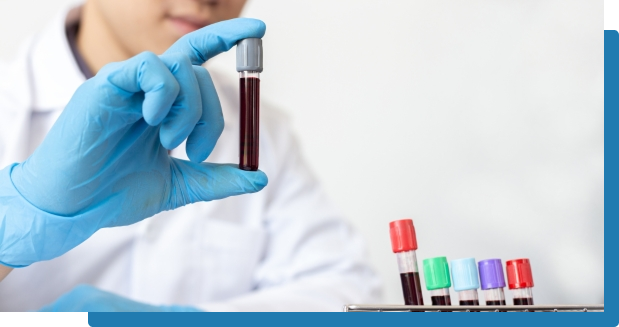
STD Panel (Sexually Transmitted Infections)
Sexually transmitted infections (STIs), also known as sexually transmitted diseases (STDs), are infections acquired through sexual contact, including vaginal, anal, and oral sex. Some STIs can also be transmitted from mother to child during pregnancy, childbirth, and breastfeeding.
Types of STIs:
- Curable STIs: Chlamydia, gonorrhea, syphilis, and trichomoniasis.
- Incurable STIs: Herpes simplex virus (HSV), hepatitis B, human papillomavirus (HPV), and HIV.
Indications for STI Testing:
- Individuals with symptoms such as genital discharge, ulcers, itching, or pain.
- Sexually active individuals with multiple partners or a new partner.
- Routine screening for sexually active individuals, especially high-risk groups.
- Pregnant women to prevent mother-to-child transmission.
- Before undergoing fertility treatments or pregnancy planning.
- As part of pre-marital or pre-employment health check-ups.
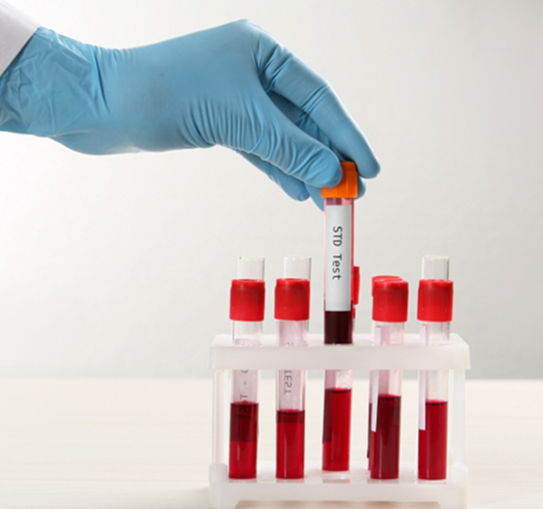
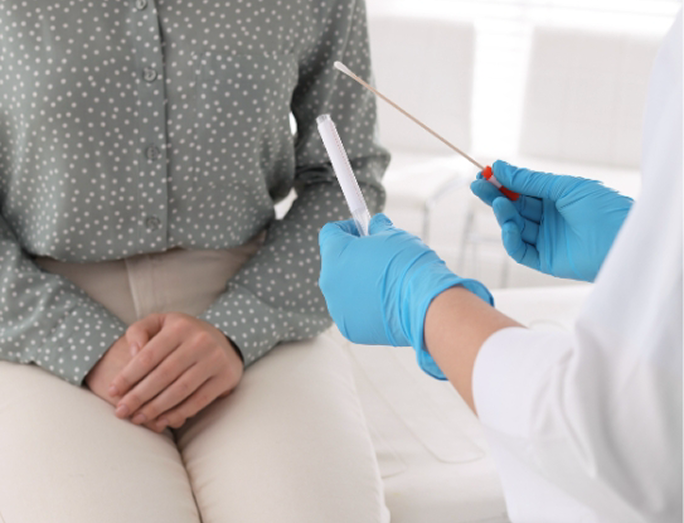
STI Panel Testing
Early diagnosis through the STI panel helps in effective disease management and prevents transmission to sexual partners or unborn babies.
Pathogens Tested in the STI Panel:
- Pathogens Tested in the STI Panel:
- Neisseria gonorrhoeae
- Chlamydia trachomatis
- Mycoplasma genitalium
- Ureaplasma urealyticum/parvum
- Gardnerella vaginalis
- Herpes simplex virus (HSV) 1 & 2
- Toxoplasma gondii (Toxoplasmosis)
HIV PCR Test:
The HIV PCR Test (Polymerase Chain Reaction) is a highly sensitive diagnostic tool used to detect the presence of HIV genetic material (RNA or DNA) in the blood. It is particularly useful for early detection, as it can identify the virus before antibodies are produced, typically within 1 to 3 weeks post-exposure. It also helps in monitoring viral load in individuals already diagnosed with HIV, guiding treatment decisions and assessing treatment effectiveness.
Indications:
- Early detection of HIV infection, even before antibodies are detectable.
- Monitoring viral load in known HIV-positive individuals.
- Diagnosis of HIV infection in newborns of HIV-positive mothers.
Sample Required: Blood sample (plasma/serum)
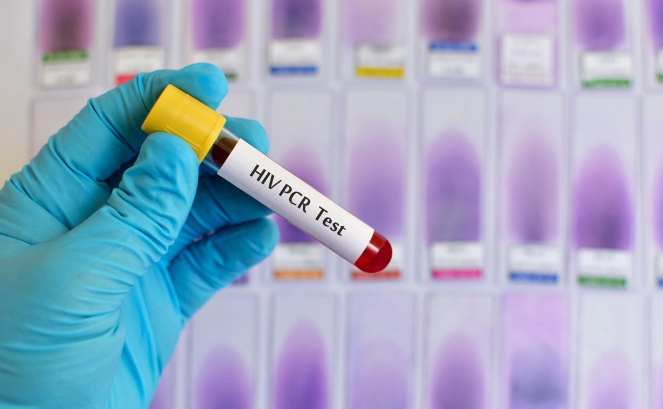
Comprehensive Infectious Tests

Comprehensive Infectious Tests
Stay ahead of respiratory and tropical infections with our advanced testing solutions. Our comprehensive infectious test panels provide accurate and timely results to aid in precise diagnosis and treatment.
Respiratory Pathogen Panel:
Our Respiratory Pathogen Panel is designed to detect 30+ pathogens responsible for respiratory illnesses, offering rapid and reliable identification of bacterial and viral infections. This panel is essential for diagnosing a wide range of respiratory conditions, ensuring timely and targeted treatment.
Why do I need a respiratory pathogens panel?
You may need this test if you have symptoms of a respiratory infection and are seriously ill, hospitalized, or at risk for complications. Most respiratory infections cause mild to moderate symptoms. But they can be serious or even life-threatening to young children, the elderly, and people with weakened immune systems.
Symptoms of a respiratory infection include:
- Coughing
- Trouble breathing
- Sore throat
- Stuffy or runny nose
- Fatigue
- Loss of appetite
- Fever
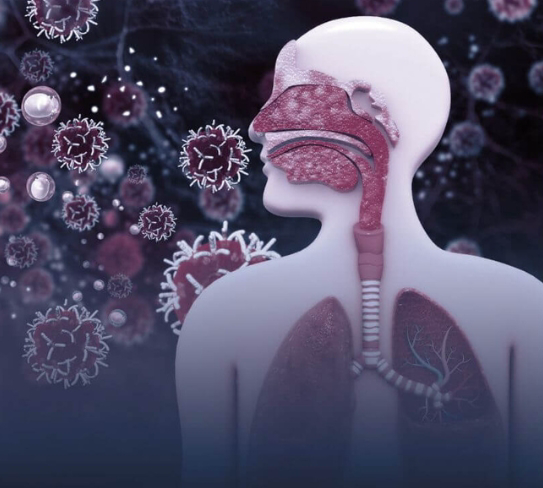
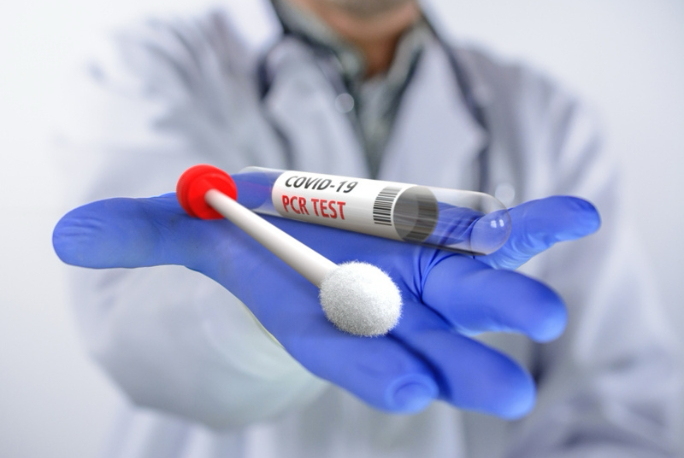
COVID-19 RT-PCR Test
The COVID-19 RT-PCR Test is the gold standard diagnostic tool for detecting the presence of the SARS-CoV-2 virus, ensuring highly accurate results with exceptional sensitivity and specificity. This test plays a crucial role in the early detection and management of COVID-19, helping to prevent the spread of infection and facilitate timely medical intervention.
Who Should Get Tested?
- Those experiencing fever, cough, sore throat, shortness of breath, or other COVID-19 symptoms.
- Routine screening to prevent potential outbreaks in healthcare settings.
- Individuals exposed to confirmed cases to ensure early detection and containment.
HMPV RT-PCR Test:
The HMPV RT-PCR Test is a highly sensitive and specific diagnostic tool used to detect the presence of Human Metapneumovirus (HMPV) RNA in respiratory samples. This molecular test is essential for identifying HMPV infections, especially during outbreaks, helping clinicians deliver timely and accurate diagnoses.
- Identifies Human Metapneumovirus, a major cause of upper and lower respiratory infections.
- Helps in differentiating HMPV from other viral infections with overlapping symptoms such as RSV or influenza.
- Particularly crucial for pediatric, elderly, and immunocompromised patients.
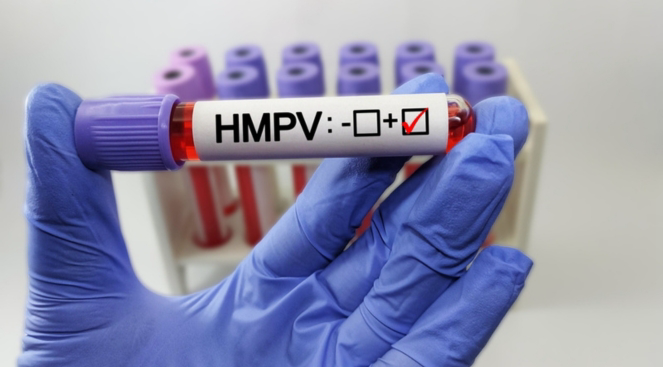

Influenza Panel:
The Influenza Panel accurately detects and differentiates between influenza A (including H1N1) and B viruses, enabling early diagnosis and effective treatment. It aids in timely infection control measures and helps healthcare providers manage seasonal and pandemic flu outbreaks efficiently.
- Detects major flu strains including H1N1, H3N2, and Influenza A & B.
- Facilitates early differentiation between flu subtypes to guide antiviral treatments.
- Essential for flu surveillance and outbreak management.
Tropical Fever Panel
Our Tropical Fever Panel provides qualitative detection of bacterial, parasitic, and viral nucleic acids from whole blood or urine samples, aiding in the accurate evaluation of tropical infections. Early and precise diagnosis is crucial for managing and preventing complications associated with these infections.
Pathogens Detected:
- Dengue virus
- Chikungunya virus
- Salmonella spp
- West Nile virus
- Plasmodium spp.
- Rickettsia spp., including Orientia tsutsugamushi
- Leptospira spp.
- Zika virus

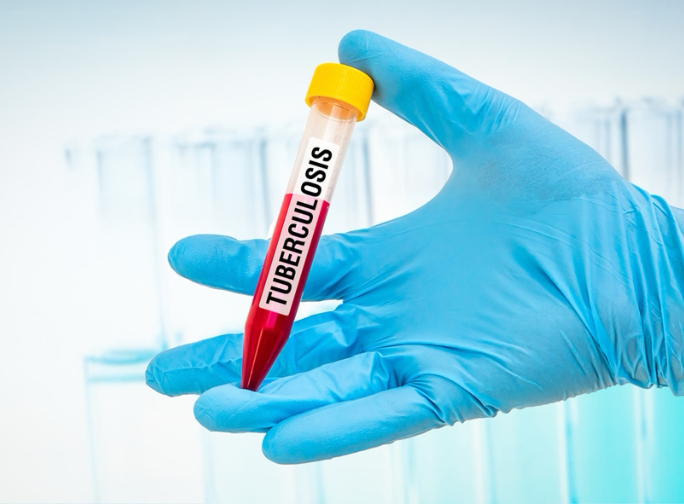
TB- PCR Test:
TB-PCR (Polymerase Chain Reaction for Mycobacterium tuberculosis) is a highly sensitive molecular test used to detect the presence of TB bacteria in various body fluids. It provides rapid and accurate diagnosis, especially in extrapulmonary TB cases, where conventional tests may fail.
Simple Signs or Situations When TB-PCR May Be Needed:
- Persistent fever, weight loss, or night sweats without a clear reason
- Swelling in the neck or underarms (may be TB in lymph nodes)
- Long-term fluid in the chest causing cough or breathing trouble (pleural TB)
- Headache, vomiting, or confusion with suspected brain infection (TB meningitis)
- Stomach swelling and pain with fluid in the abdomen (abdominal TB)
- Joint pain and swelling (joint TB)
- Chest pain and fluid around the heart (pericardial TB)
Sample Required- All Body Fluids

Indications for Testing:
- Patients with persistent fever, rash, and muscle or joint pain.
- Travelers returning from tropical or endemic regions.
- Individuals with suspected exposure to mosquitoes or contaminated water sources.
- Cases with unexplained fever not responding to standard treatments.
- Pregnant women in high-risk areas for infections like Zika virus.
Why Choose Our Tests?
- Comprehensive coverage: Detects a broad range of infectious agents.
- Cutting-edge molecular diagnostics: Ensures accuracy and reliability.
- Rapid turnaround times: Timely results for better patient management.
- Trusted by healthcare professionals: Backed by years of expertise and innovation.

CerviSens HPV High Risk Genotyping Test

Cervical Cancer: Understanding the Disease
Cervical cancer is a type of cancer that occurs in the cells of the cervix, the lower part of the uterus that connects to the vagina. It is primarily caused by persistent infection with high-risk HPV types. Over time, untreated infections can lead to the development of precancerous lesions and, eventually, cervical cancer.
Take charge of your health if you fall into any of these categories:
- Women Aged 25 and Above: Begin regular screening for cervical cancer prevention and peace of mind.
- Abnormal Pap Smear Results: Follow up with HPV genotyping for precise risk assessment and tailored care.
- Persistent Symptoms: Address unexplained pelvic discomfort or unusual discharge with a targeted test.
- Family History of Cervical Cancer: Act early to reduce your risk and safeguard your future.
- Unvaccinated Women: Ensure protection against HPV strains not covered by the vaccine.

Cervical Cancer:
Cervical cancer remains one of the most prevalent cancers globally, but it can be prevented through early detection and timely intervention. Unfortunately, despite its preventability, thousands of lives are lost each year due to late detection.
Cervical cancer claims the lives of over 311,000 women annually, with nearly 90% of deaths occurring in low- and middle-income countries.


What is HPV and Why Should You Care?
Human Papillomavirus (HPV) is the most common sexually transmitted infection (STI), affecting millions of individuals worldwide. With over 100 known strains, 14 high-risk types are strongly linked to cervical cancer. Persistent infection with high-risk HPV types, especially HPV-16 and HPV-18, is responsible for nearly 70% of cervical cancer cases
What is the CerviSens Self-Sampling Kit?
The CerviSens kit allows you to collect cervical samples in the comfort and privacy of your home without needing a clinic visit.
Key Features of the CerviSens Kit:
- Simple & Comfortable:Self-sampling eliminates the stress of clinical procedures.
- High Accuracy:Advanced PCR technology ensures precise detection of 14 high-risk HPV types.
- Early Detection:Genotyping for HPV High Risk types (14 types), the leading causes of cervical cancer.
- Convenient:Easy-to-follow instructions with no doctor appointments required.


Non-Invasive &
User-Friendly
Accurate & Reliable
Cost-Effective &
Early Detection
FAQ Frequently Asked Questions
- CerviSens combines self-sampling convenience with advanced PCR technology to deliver highly accurate detection of high-risk HPV types, including genotyping for HPV-16 and HPV-18.
- Not at all! The self-sampling kit is designed to be user-friendly and non-invasive, ensuring a stress-free experience.
- WHO recommends that women aged 25-65 undergo HPV screening every 3-5 years, depending on their medical history and results.
- A positive result doesn’t mean you have cervical cancer—it indicates the presence of high-risk HPV types. Consult your healthcare provider for further evaluation and follow-up care.
- Even if you’re vaccinated, HPV testing is crucial, as vaccines don’t cover all high-risk HPV types.
- Visit our website or contact GreenArray to get your self-sampling kit delivered right to your doorstep